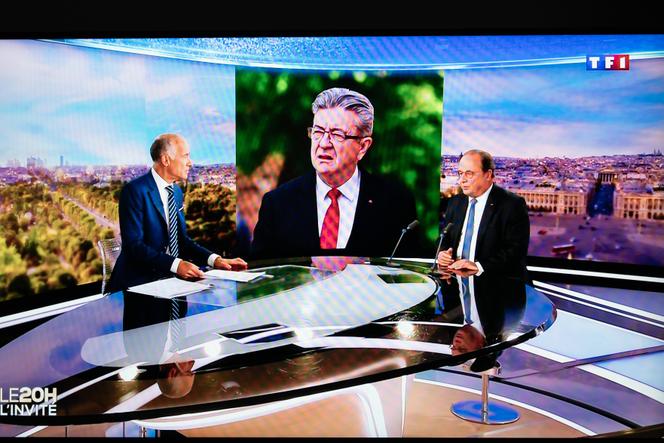


If, just a week ago, left-wing leaders had been told they'd be relieved to have François Hollande's support, they wouldn't have believed it. However, it was the former French president who laid the final brick in the union of the left initiated by La France Insoumise (LFI), the Socialists, the Communists and the Greens, after four days of intense negotiations. The four parties reached an agreement on Thursday, June 13, to head into elections on June 30 and July 7 under a common banner
The Nouveau Front Populaire, as it is called, will present one candidate per district in all of mainland France with the aim of thwarting predictions that the Rassemblement National (RN) will come out victorious. "I don't know the details, but for me, what's essential is that the union was able to be made. I have my differences, which we all know, but there comes a time when we go beyond our differences and focus on what's essential," said the Socialist on television on Thursday. And he called to support "any candidate who is not far-right" in the second-round run-off votes.
On Friday morning, Raphaël Glucksmann, the Socialists' lead candidate in the European elections on June 9 (who obtained 13.8% of the vote), declared his support for the new alliance. "The only thing that matters to me is that the Rassemblement National doesn't win these legislative elections and govern this country. (...) The only way to do that is for there to be a union of the left," said Glucksmann on France Inter radio.
There was no guarantee that Glucksmann and Hollande would back such a wide alliance. Both are highly critical of La France Insoumise and its leader, Jean-Luc Mélenchon. The reverse is also true. So how did they get on board? First of all, by a left-wing survival reflex that goes back to the aftermath of the far-right riots of February 6, 1934, and the subsequent creation, under pressure from party members, of the original Front Populaire, which won the elections in 1936. The fight against the far right is the glue that holds the left together, the fight behind which unity is unquestioned. "The fight against the far right is not a tactical positioning for us, it's something visceral," said Sandra Regol, a now-former Green MP. As Hollande put it on Thursday evening: "Fighting the far right is the fight of my life."
The other interpretation of Hollande and Glucksmann's statements is of a more pragmatic endorsement: Supporting the Nouveau Front Populaire means accentuating the internal balance of power on the left. The situation is no longer the same as it was in the summer of 2022, when the NUPES alliance was concluded. Back then, Jean-Luc Mélenchon was in a position of power on the left: Having scored 22% in the presidential election, he could claim leadership of the left without any possible challenge.
You have 45.74% of this article left to read. The rest is for subscribers only.
